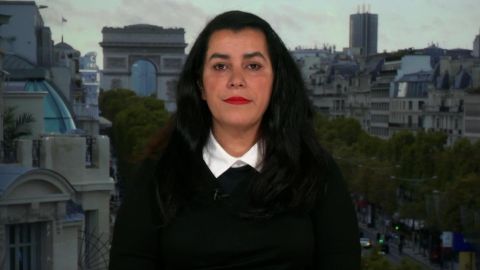Read Transcript EXPAND
CHRISTIANE AMANPOUR, HOST: Marjane, let me ask you because you said it’s very different this time. And you have been speaking to young people in Iran —
MARJANE SATRAPI, FILM DIRECTOR AND AUTHOR, “PERSEPOLIS”: Yes.
AMANPOUR: — from where you are in Paris. What are they saying to you?
SATRAPI: Absolutely.
AMANPOUR: Boys and girls, what are they saying to you?
SATRAPI: What they say to me is that they don’t want the system anymore. They want democracy. I mean, they don’t believe in the reform and their rights. Iran’s government is a dictatorship. If a dictatorship opens for reform, for being transformed, it stops being a dictatorship. Reform and dictatorship doesn’t go together. So, this is something not possible. You cannot make this government to become a democratic government because it’s — it is not — it is made — in its spaces, is a dictatorship. And they want a new — they want a new government. They want a new regime. They want a new system. And I talked to them and this generation, they’re very, very different from us. I mean, we have to know that, you know, the time that the Islamic revolution happened, only 40 percent of Iranian people, they could read and write. Now, it’s above 80 percent of them. This people they have — they’re born with internet. They have access, actually, to the information around the world. This new generation — first of all, they claim not to be sexist at all. You see — I mean, the big slogan is, zan, zindagi, azadi. Woman, life, freedom. And the Human rights — I mean, the women rights is the human rights. In any society, Iran or anywhere else in the world, if the women are repressed, if half of the population there were — they’re actually worth half of the other half just because of their gender, we cannot talk about democracy and human rights. Women right and human right is the same thing. And this is something that they have understood. So, that gives lots of hope because I always thought and I always believe that the biggest enemy of democracy is the patriarchal culture. Yet these young boys, this young — I spoke actually with one today, and he was like, of course, we are equal to the girls. Of course, there is no difference. And the — this generation, you cannot fool them like they fooled our generation. And Iranian people, in general, they’re much more secular than 40 years ago. And this is exactly the basis of the problem. You have a government which is not absolutely in touch with its population. It doesn’t know what the population wants. They think they are the majority. They have a basis, for sure. But this is not the majority of the country. If the majority of the country was with the government, it would not be called a dictatorship again. And, yes —
AMANPOUR: So —
SATRAPI: — so, knowing all of that, if a government is not in touch with its population that it cannot govern them because you have to know your people.
About This Episode EXPAND
In her illustrated memoir “Persepolis” author Marjane Satrapi recounts growing up in Iran during the revolution. In an exclusive interview, Christiane speaks to Chile’s new president, Gabriel Boric, who recently made an impassioned call to fight for democracy at the U.N. Author Joshua Prager has spent a decade researching the life of “Jane Roe” — the woman at the heart of Roe v. Wade.
LEARN MORE


